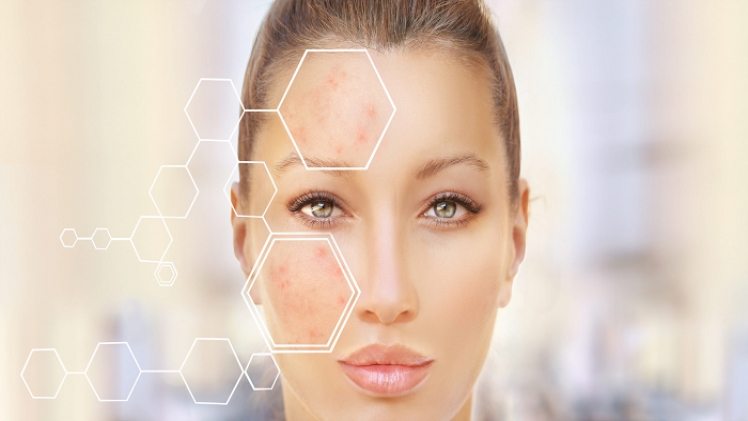When the skin’s pH level is off balance, it can result in various symptoms, including dryness, irritation, and premature signs of aging. Fortunately, there are several things you can do to help restore the skin barrier and maintain a healthy skin pH. Properly cleansing the skin is one of the critical steps in restoring your skin’s natural pH balance.
The Importance of Maintaining a Healthy Skin Barrier
Your skin barrier is critical in how your complexion looks and feels, from keeping the good stuff in (like hydration and nutrients) to the bad stuff out. That’s why it’s so essential to maintain a healthy skin barrier. A robust and balanced skin barrier will keep your pores clear, help to even out the tone of your complexion, and ward off signs of aging like wrinkles. When the skin’s pH level becomes compromised, problems start to appear.
Over time, the accumulation of minor insults can cause long-term damage. If your barrier is weak or damaged, you will experience redness, dryness, flaking, itching, breakouts, and other symptoms. It’s easy to get the skin barrier out of balance with things like over-exfoliation, over-using acids, harsh cleansers, and too many facial treatments. This also happens as you age since hormonal changes can affect the skin’s natural pH levels.
The best way to protect your skin barrier and prevent it from getting out of whack is to prioritize skincare products containing ingredients in the skin. Avoid products with sulfates, fragrances, and essential oils, which can all irritate and break down the barrier over time.
The Skin’s Natural pH Range
The pH scale runs from 0 to 14, with 0 being the most acidic and 14 the most alkaline. Human skin typically has a pH level of about 5.5, which means it’s slightly acidic. Keeping your skin’s pH healthy is essential to maintaining the barrier function and preventing internal and external factors from negatively affecting it. The correct skin pH is essential to a robust, resilient barrier that keeps water and beneficial microbes locked in and harmful bacteria and chemicals out.
Without a healthy pH, you’ll experience chronically dry skin and may even develop conditions like acne, psoriasis, eczema, or rosacea. Ideally, your skin should remain within a 5-7 range, but it can sometimes get out of this sweet spot. This happens when you use too alkaline products, which strip the natural oils from your skin and can cause a disruption of the barrier.
Alternatively, using too many acidic products can also disrupt the skin’s barrier, as it causes an increase in water loss and the breakdown of corneocytes, contributing to red, flaking, or irritated skin. The best way to keep your skin’s pH in the correct range is by using gentle cleansers and a lightweight moisturizer. In addition, a weekly scalp scrub is also an excellent way to remove buildup and maintain healthy, balanced hair and scalp.
External Factors That Affect the Skin’s pH
The pH scale runs from 0 to 14. The skin is either acidic or alkaline, depending on its location in the range. If the skin is too acidic, it loses moisture and dries out. If it is too alkaline, it becomes inflamed and susceptible to infection. Both conditions are caused by disrupting the skin’s natural barrier function. The usual range of skin pH is 4.5 to 5.5. This is important for the skin’s permeability barrier formation and antimicrobial defense systems. It also limits the activity of enzymes (like b-glucocerebrosidase and acid sphingomyelinase) in the stratum corneum.
Other factors that influence the skin’s pH include age and sex. Men have been shown to have more acidic skin, most likely due to hormonal influences. Pigment type also plays a role. Darker-pigmented skin has been shown to have superior permeability barrier function and acid mantle integrity compared to lighter-pigmented skin. Certain skincare habits like long showers, scrubbing too hard, and harsh cleansers disrupt the acid mantle by making it more alkaline. They also disrupt the synthesis, excretion, and maturation of the lipids that form the skin’s barrier, leading to impaired barrier function. This is why many eczema products and acne medications are designed to lower the skin’s pH.
Treatments for a Healthy Skin Barrier
A healthy skin barrier protects against the damaging bacteria found in acne and psoriasis and external factors like sun exposure and pollution. When the barrier is damaged, it will send SOS signals to you in the form of itchiness and flaking, rashes and redness, itching and burning when you apply lotions or makeup, and sensitivity to products and ingredients like fragrances, sulfates, and detergents. The primary way to repair a damaged skin barrier is to eliminate irritation.
Then, add a gentle, non-irritating routine that includes washing with lukewarm water in the morning and moisturizing with hydrating, barrier-supporting ingredients, like humectants and occlusives, plus ceramides and niacinamide. Look for a moisturizer that contains ingredients your skin already makes, like shea butter and jojoba oil, or that can help replace them, such as squalane and urea. Then look for formulas labeled “barrier repair” or use ingredients that mimic natural lipids, such as ceramides and niacinamide, to reinforce your barrier.
Finally, choose cleansers that contain nourishing, barrier-supporting emollients and avoid drying ingredients like alcohol. If the damage persists, consult a dermatologist for additional treatment options. They can recommend the right products for your skin type and situation.

